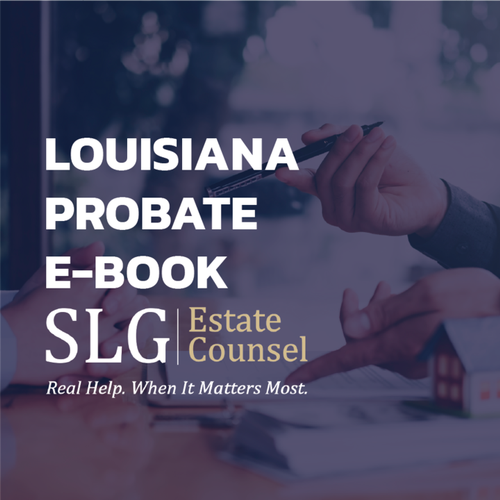If you have been appointed the personal representative of a Louisiana estate, you likely have responsibilities beyond simply distributing inheritances. Among a personal representative’s most important tasks is ensuring that the deceased’s heirs and creditors are aware that the estate has entered succession. 
A Personal Representative’s Duty to Inform Heirs
Before a personal representative may disburse inheritances, they must first initiate succession proceedings by filing a petition in the parish where the decedent lived or the parish in which the non-resident decedent owned immovable real properties.
Estate Representative Requirements
- Locate the deceased person’s last will and testament
- File an affidavit of Death, Domicile, and Heirship in the appropriate parish
- Present witnesses who may attest to the validity of the will, if the will is handwritten
- Notify potential heirs and creditors that succession has been initiated
If the deceased person has a valid will, you must notify the listed heirs that succession proceedings have begun. While you are not required to divulge any unnecessary information, you should inform the heirs about certain aspects of the estate.
Information to Communicate
- The nature of their inheritance
- The value of the estate
- The estate’s outstanding debts
The Personal Representative’s Duty to Inform Creditors
If the decedent passed away with unpaid debts, the personal representative may be required to inform creditors of succession. However, identifying and notifying creditors could present unexpected challenges, especially if you are not intimately familiar with the deceased person’s financial situation. You may have to check their bills; determine whether they have a mortgage or vehicle payment; and respond to payment requests from persons and entities purporting to be creditors.
When Creditors Can File Estate Lawsuits
A creditor may only recover an outstanding debt if they submit a notice of claim to the personal representative. The creditor’s notice of claim should contain certain information.
What a Creditor’s Claim Must Include
- The name and address of the decedent
- The amount and nature of the claim
- A description of any security associated with the claim
- Any relevant evidence of debt such as a signed agreement or mortgage plan
After receiving a notice of claim, the personal representative is entitled to evaluate its authenticity and merit. If the representative believes that the creditor claim is invalid or fraudulent, they may reject it. The creditor can then file a lawsuit.
Why a Creditor Might File a Lawsuit
- They believe the will is not valid
- They want the court to recognize a debt as active and actionable
- They are continuing litigation initiated prior to the decedent’s death
- They want to recover estate assets held as secured debt
If the personal representative acknowledges the debt as valid, they must still seek court authorization before using the estate’s assets to resolve the debt.
Time Constraints on Creditor Claims
Louisiana succession is a time-sensitive process. Creditors are subject to stringent statutes of limitations, which limit how long they have to file a claim against the estate.
Timeframes for Filing a Claim
- Creditors claiming an outstanding interest in unpaid open accounts, such as credit cards, are subject to a three-year statute of limitations.
- Creditors claiming an outstanding interest on contract debts, such as a mortgaged home, are subject to a 10-year statute of limitations.
The personal representative is responsible for ensuring that valid debts are paid. If the representative fails to inform creditors or does not pay the estate’s debts using the estate’s assets, creditors could pursue recompense through the estate beneficiaries’ inheritances, even if the inheritances have already been disbursed.
How Creditors Can Create Big Problems
Personal representatives are often friends or relatives of the decedent. Since many personal representatives are not attorneys, creditors often try to take advantage of their lack of legal expertise by submitting claims for phony or dishonest claims.
Dishonest Claims
- For expired debt
- For judgment liens against protected properties
- For individually held debt that cannot be recovered from the estate
Even frivolous claims can have catastrophic consequences. While the personal representative is not responsible for paying creditors out of pocket, the estate may bear the burden of litigation. If the creditor is persistent in their claim, the representative may be forced to appropriate estate assets to fund a defense. Over time, the costs of protracted litigation can mount, depriving the decedent’s intended beneficiaries of their deserved inheritance.
Contact an Estate Planning Attorney
If you’re the personal representative of a deceased’s estate, let the attorneys at Scott Law Group - Estate Counsel help you. We can initiate succession proceedings; identify the estate’s heirs and creditors; defend the estate from any frivolous challenges; and resolve legitimate debts. If you need assistance with a Louisiana succession, please call us at 504-264-1057 to get started on your case today.
|
Related links: |













